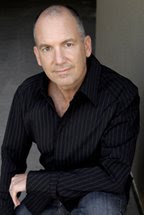Growing up in a fundamentalist family, in the rural South, I learned fast that I shouldn't ask too many questions. Devoutly religious, my folks encouraged me to follow the path that they thought was best, based on the doctrine of their Wesleyan church. I tried my best, throwing myself into Sunday School, choir practice and the Christian Youth Crusaders, a Bible-based version of the Boy Scouts where you earn merit badges in such categories as "Know Your Bible," "Help at Home" and "Shoes of Peace."
I tried my best to fit in. I learned to pray and was dunked, sprinkled and blessed. I went to church camp, made a few treks to the altar during the call and attempted to will myself to have a "born again" experience more than once.
But I just didn't get it. I asked a lot of questions about what it supposed to feel like- would I feel tingly? would my soul leave my body for a second? would it change the way I thought? Most of the time, people were more than happy to explain their experiences. I was very curious.
From time to time though, my questions weren't as well-received. "If people are born-again, why do they go back to sinning?" or ""Why do the neighbors treat black people so rudely when Jesus said to love they neighbor?"
When I realized that I was gay as a early teen, it threw a monkey wrench in the whole process. No matter how much I prayed for God to take away my feelings for other guys, it didn't change. I couldn't understand where this desire came from. I didn't know other gay people existed, or that there was even a name for what I was feeling. All I knew, all I could trust, was that I feel an excitement for guys that I didn't feel for girls. It wasn't rational. It wasn't calculated. It wasn't my goal. It just was.
Understanding the dynamics I was raised in took me a while. I only began to gain perspective as I left that little town and met people from other towns, other states and other backgrounds. Studying psychology gave me a chance to look at myself in a new way. It helped me step back from my own perceptions, so strongly shaped by the perceptions of my parents, my community and the church in which I was raised, and to question these views in a new way.
My life as a psychologist has helped me expand my views. I learned to listen and to reserve judgment until I got the facts. By helping others to step back from their own thinking and see a broader array of options, I learned to change my own thinking and understand my own choices.
I've also been trying to find my voice. I started small, with an article here or there, a lecture to a class of eager undergrads. One of passions became helping others attain better mental and physical health. Almost by chance, I had the opportunity to collaborate on the revision of a classic book, The Chronic Pain Control Workbook in 1996.
From there, I authored The Gay and Lesbian Self-Esteem Book: A Guide to Loving Ourselves published by New Harbinger in 1999 and co-authored Queer Blues: The Lesbian and Gay Guide to Overcoming Depression with Marny Hall, Ph.D. in 2001. Recently, I completely revised and updated the G/L Self-Esteem Book, adding new chapters on Queer Parenting, Transgender Self-Esteem, Aging, and Men on the "down low" which was released in March of this year by Alyson Books.
I feel a passion for the issues explored in my queer issue books. I'm concerned about how our mental health is taxed by the politics that people play with our lives. I'm angered by people who call themselves "Christian" who don't seem to understand the real example of the life of Jesus Christ. Hipocrasy drives me insane- in myself and in people who have the power to do something powerful and good, but choose not to for fear of loss of that power.
This blog will be an extension of my voice- a gay man who is still learning to ask questions again, an American who loves this country and pays taxes, and a spiritual seeker with a soul and a heart. Oh yeah, and occasionally a sense of humor.
Subscribe to:
Post Comments (Atom)













No comments:
Post a Comment